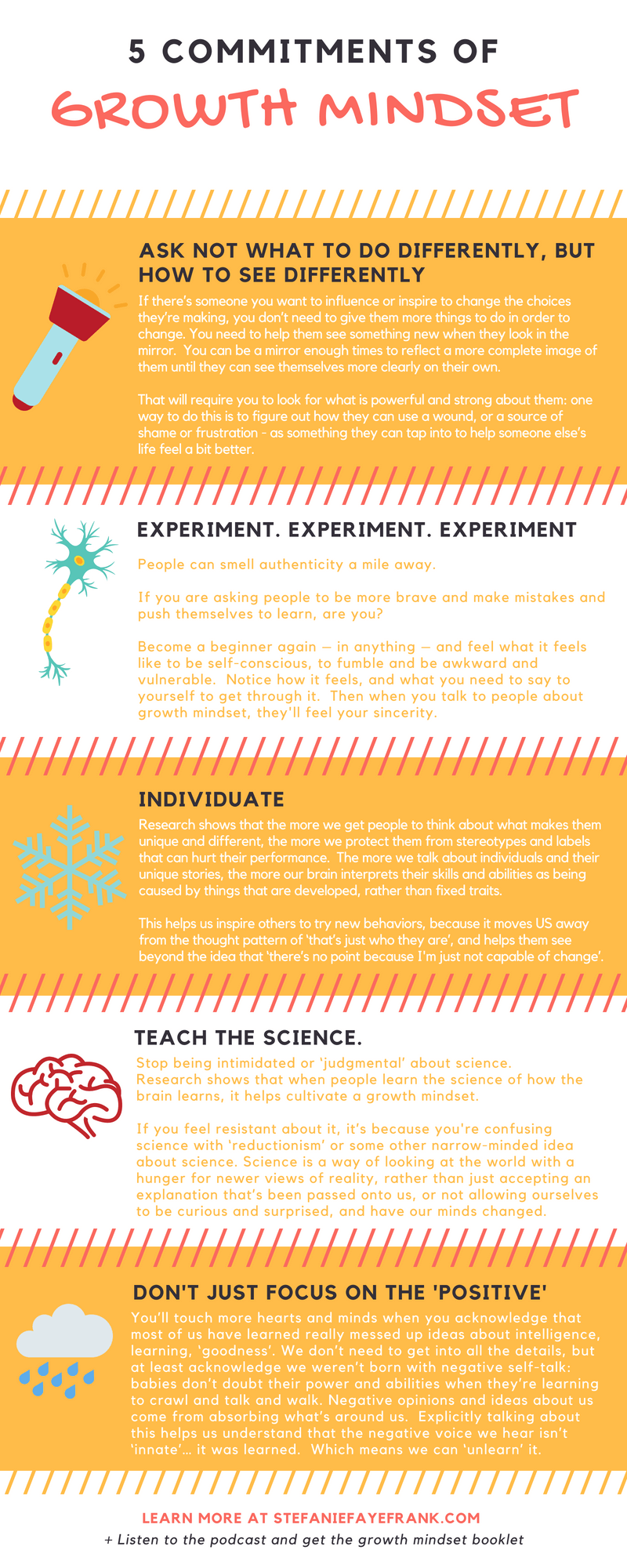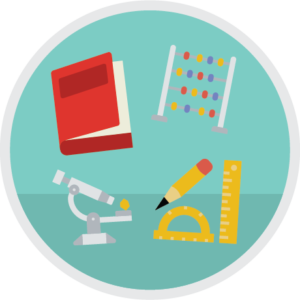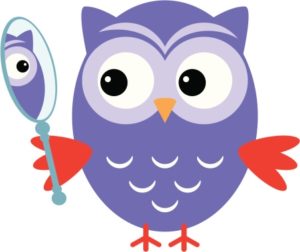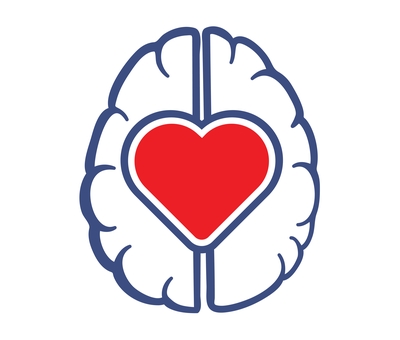Download this poster as a pdf
and make sure to share it!!
1. Ask not what to do differently, but how to see differently
ALL human behavior starts with how we ‘see’ (perceive) a person or situation. If we want to do something in a new way, we have to see ourselves, others and the world in a new way.
How does our brain-body system ‘see’ in a new way? By getting more information. As soon as our brain-body system gets more ‘data’, it opens up its awareness. We notice more. The more we notice, the more accurately we perceive. The less information we have, the more our system narrows its awareness onto things it expects.
[p.s. – We therefore rarely ever actually ’see’ things as they really are! we even ‘see’ objects as solid because our system ‘expects’ it …even though no object in the universe is ‘solid’ – it’s all just particles and waves vibrating!) (learn more about all the tricks our brain-body system plays on us in Episode 11: This is what happens to your brain when you add diversity to your life)]
2. Experiment. Experiment. Experiment.
If you are asking people to be more brave and make mistakes and push themselves to learn, are you?
Become a beginner again – in anything – and feel what it feels like to be self-conscious, fumble and be awkward and vulnerable. Notice how it feels, and what you need to say to yourself to get through it. Then when you talk to people about growth mindset, they’ll feel your sincerity. Your words will be more natural. . And you likely won’t need to rely on someone else’s catchphrases or research to talk about what its like to build a new ‘muscle’ and push through the dip.
Listen to Podcast Episode 9: “How to be more authentic when you teaching growth mindset”
3. Individuate
Research shows that the more we get people to think about what makes them unique and different, the more we protect them from stereotypes and labels that can hurt their performance. The more we think about people’s individual traits and what is so unique about them, the more our brain interprets their skills and results as being caused by things they do, rather than who they are inherently.
see Dweck’s original research on using nongeneric language and incremental versus entity mindsets
Listen to Podcast Episode 8: “How to protect people from the perils of stereotype threat”
4. Teach the science.
Recent studies are showing that when people learn the science of how the brain learns and develops through the challenges, it helps cultivate a growth mindset.
Listen to Podcast Episode 1: “The neuroscience of growth mindset”
 5. Don’t just focus on the ‘positive’ mindset stuff.
5. Don’t just focus on the ‘positive’ mindset stuff.
Acknowledge that we all have different types of built-up ‘programming’ that may or may not serve us now.
Babies don’t have self-doubt when they’re learning to crawl and talk and walk. Negative opinions and ideas come from us absorbing what’s around us. Explicitly talking about this helps us understand that the negative voice we hear isn’t ‘innate’… it was learned. Which means we can ‘unlearn’ it.







